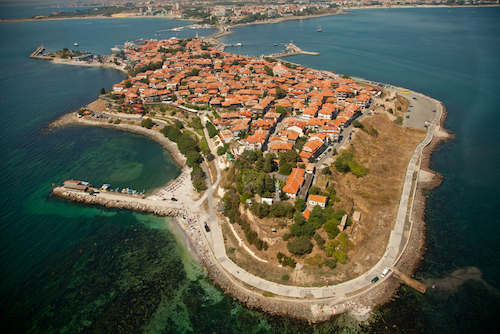If you are an expat in Bulgaria and are concerned about the cost of your health insurance, you have a number of options. If you are working or have residence in the country, then signing up with the national health insurance scheme is compulsory.State health insurance is mandatory for everyone, including employed expats, and if you pay into the national scheme (NOI), you will be eligible for medical and dental reductions or free treatment. If you have children in education who are under the age of 26, they will be covered under the state system and so will your spouse.
However, you may also wish to take out private health cover for additional peace of mind, or to cover any unexpected costs.
Personalising Your Health Insurance Cover
To apply for the national scheme, you will need a residence permit. Provided that you are paying into the system, you and your dependents will be able to access GP visits, referrals to a specialist, and reductions for your prescriptions.
However, you also need to remember that having proof of medical insurance is also mandatory for applying for a residence permit, so you are unlikely to be entering Bulgaria without some form of existing private cover. You can therefore shop around for the most economic health policy for your particular profile with private providers.

You might also want to check if some insurance cover is already provided by your bank, if you are looking at a short stay in the country.
The EU guidance to Bulgarian healthcare also lists treatment that is not linked to health insurance, so even if you do not have cover, you will still be entitled to:
• emergency care
• obstetric and gynecological examinations and medical care for childbirth for uninsured women
• in-patient psychological care
• transplantation of organs, tissues and cells
• mandatory treatment and/or mandatory isolation
• expert assessments of the type and degree of long-term incapacity to work
• medical transport
• assisted reproduction
However, although there is a wide variety of free treatment, Bulgarian healthcare is not ranked highly by the WHO and the quality of treatment varies substantially across the country, so you may wish to take out private health insurance to cover your stay.
Bulgaria has not had the funding or the infrastructure to update its facilities to the high standard enjoyed by some other EU nations, and although its medical professionals are highly trained and very competent, facilities may not be analogous to elsewhere in the EU.

If you choose to make out-of-pocket payments to a healthcare provider, visits to private clinics cost the equivalent of €20-30. However, expats report that hospital costs can be easily escalate and that it is risky not to have private health insurance in this country.
We’re going to suggest some options for you to consider in order for you to keep your premiums as low as possible.
Selectable Options
Check the small print of any private policy to see whether it covers treatments that you may want to access, such as specialist treatment or more advanced dental care, for example crowns or dental implants.
Remember to check if your potential policy covers pre-existing conditions: the definition of this varies between insurers. Usually the term applies to any conditions which present symptoms or for which you’ve been treated in the last five years. This normally includes any conditions you were diagnosed with over five years ago, but some insurers have different time limits for diagnosis.
You may also want to check whether your policy has a ‘hospitalisation’ clause covering you for occasional hospital visits. You may need to discuss this directly with your insurer.

Take a good look at any potential policy for any cover relating to healthcare which does not apply to you: some policies have provision for maternity care, for instance, and if you are not intending to become pregnant (or prefer to rely on the cover provided by the Bulgarian maternity system), then you may wish to reduce your policy costs by having such options removed.
Cost Sharing
You may also be able to reduce the cost of your premium through cost sharing: this means that you and your insurer will share the costs of any treatment. You will pay up to an agreed limit, and your provider will cover the rest. Different insurers will have different ways of arranging cost sharing.
Co-pay: where you pay a fixed sum for your treatment and your insurer covers the rest. For instance, if the total cost of your treatment is €85, and your co-pay amount is set at €40, then you will pay €40 and your insurer will pay €45.
Co-insurance: where you pay a fixed percentage of the total cost and your insurer covers the rest. For instance, if your co-insurance is set at 20%, you will pay 20% of €85 and your insurer will cover the remaining 80%.
Deductibles: where you pay the entire amount allowed for all services provided until the deductible is met. For instance, if your policy has a €1,000 annual deductible, you would pay €85 for each visit to your GP. However, you would then have to pay the entire amount for 11 such visits (€1000/€85 = 11.8) before your insurance began to pay out to the doctor directly.

You may also need to take a look at whether there is an out-of-pocket maximum that you would be expected to pay after your deductible has been met.
Let’s say that your plan above, with a €1000 deductible, also has a co-insurance option of 20% and an out-of-pocket maximum of €1500. You will thus pay €85 for 11 visits to the doctor under your deductible until it is met. You will then pay €17 for each visit as your 20% coinsurance, until you reach the co-insurance ceiling of €500 (€1,500 minus the deductible of €1,000), or about 29 more visits (€500€17 = 29.4). At that point (40 total visits in a year), you would pay nothing more for the remainder of the plan year.
It’s worth doing the maths, especially if you don’t think that you’ll need to make more than a couple of visits to your GP in Bulgaria in any one policy period. For example, if you just want dental check-ups with an occasional filling, it might be worth working out whether one or two out-of-pocket costs might be cheaper than full dental cover.
Would you like to share your experience of life abroad with other readers? Answer the questions here to be featured in an interview!

